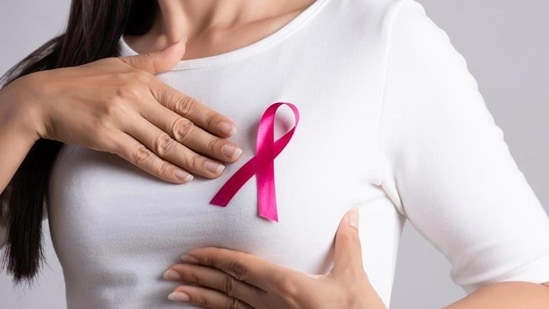
Why breast cancer relapses after treatment: Reasons and tips to stay cautious
2 months ago | 25 Views
When abnormal breast cells grow out of control and form tumours, breast cancer develops. When breast cancer is left undetected for a long time, the cancer can spread to the entire body and turn fatal. Some of the common symptoms of breast cancer are lump on a breast, pain in the breast, lump in armpit, bloody discharge from nipple and changes in shape or texture of a nipple. Depending on the stage of breast cancer, treatment options include chemotherapy, radiation and surgery. However, often breast cancer can relapse after treatment. Here's why it happens.
Why breast cancer relapses after treatment?
In an interview with an Lifestyle Magazine, Dr Tasneem Bharmal, Associate Consultant, Medical Oncology, Punyashlok Ahilyadevi Holkar Head and Neck Cancer Institute of India, Mumbai, said, “Breast cancer can be relentless, sometimes recurring even after successful treatment. This relapse occurs because some mutated cancer cells escape initial therapies, remaining hidden and resistant. Over time, these cells might undergo new mutations, becoming more potent and capable of proliferating locally or in other parts of the body. Some cancer cells can enter a dormant state—making themselves inactive and undetectable for extended periods. These dormant cells are not affected by treatments targeting actively dividing cells. Over time, certain triggers like changes in the body’s microenvironment or immune system can reactivate these dormant cells, leading to cancer recurrence.”
Tips to stay safe from breast cancer relapse:
Regular follow-ups with Oncologist: It is important to keep having regular checkups even after the cancer has been treated. Thorough history taking, clinical examinations and routine screenings like mammograms are important.
Self-awareness and body literacy: Knowing what is normal for your body and recognising any changes can help us seek prompt medical attention. Paying attention to any new or unusual symptoms, regardless of how much time has passed since treatment helps in early detection.
Healthy lifestyle: Maintaining a healthy lifestyle through a balanced diet, regular exercise, and avoiding smoking and excessive alcohol can also help reduce the risk of cancer recurrence.
Read Also: how is poor oral hygiene linked to pancreatic cancer risks? #




















